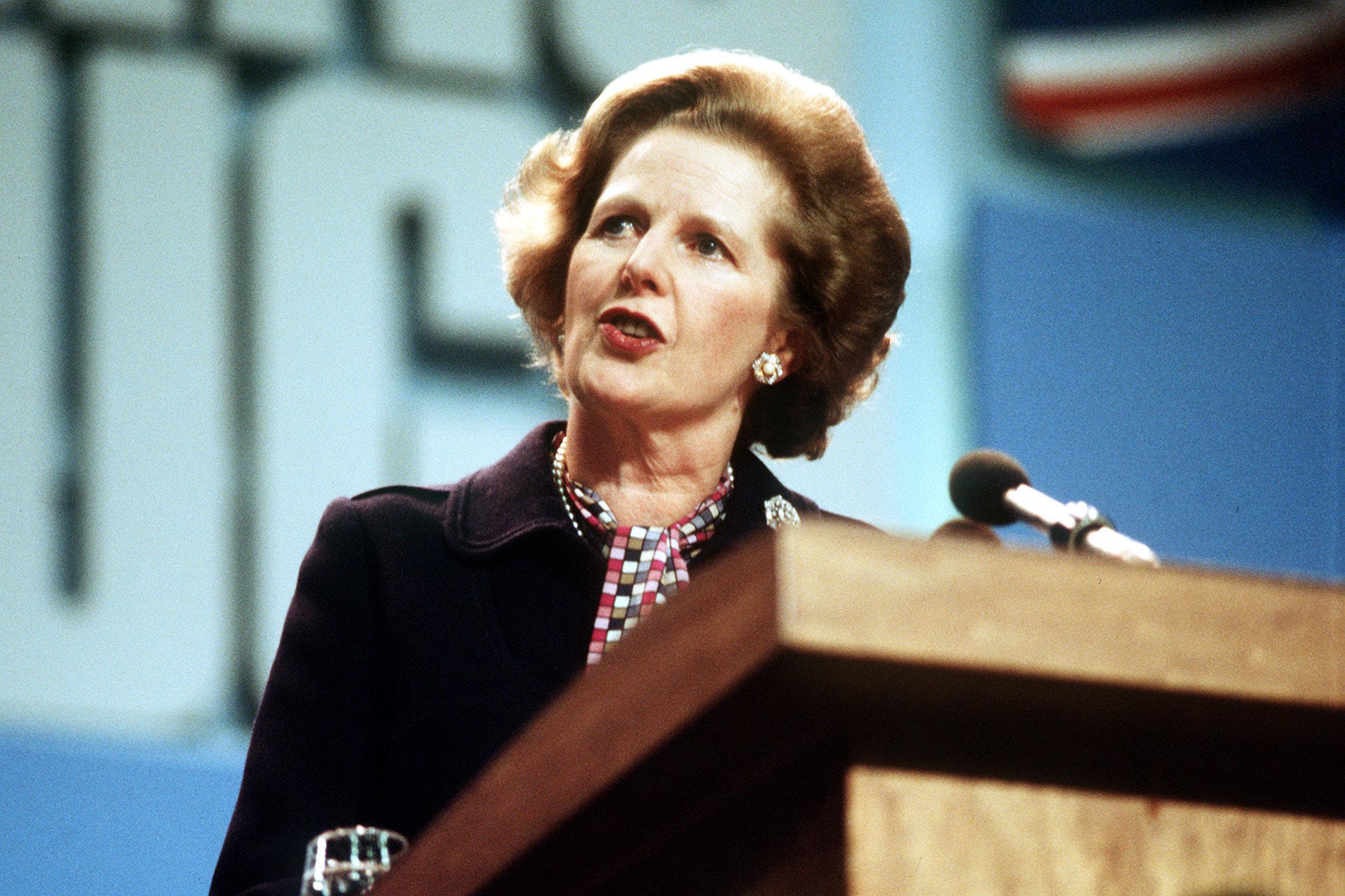You need to make your mind up about Maggie, Mr Starmer
The Labour leader divided his party when he praised the former Tory prime minister for dragging Britain out of a stupor – now, he has rounded on her misunderstood remark that ‘there is no such thing as society’. It is about time he decided whether he is pro-Iron Lady or against, says John Rentoul


It is the easiest target in the dictionary of British political quotations. “There is no such thing as society,” Margaret Thatcher told Woman’s Own in 1987. “There are individual men and women, and there are families.”
Every politician with a speech to give to charities will reach for it and criticise the Iron Lady’s heartlessness. Even David Cameron did it, coming up with the brilliant inversion: “There is such a thing as society – it’s just not the same as the state.”
So there was a clunking inevitability about Keir Starmer’s invocation of it in his speech to a “civil society summit” of charities. He attacked Thatcher and Cameron equally, blaming her for “individualism run rampant” and him for “the Big Society – a great idea in principle, but when austerity kicked in, we ended up with the Poor Society”.
Having summoned the Conservative demons for exorcism, Starmer offered absolution in the style of Tony Blair: “Now we need a new vision for a new era.” This consisted, unsurprisingly, of an offer that a Labour government would “harness civil society as one of the three key engines for renewal, working alongside the public and private sectors”.
So far, so much motherhood and apple pie, with some volunteering thrown in at evenings and weekends.
But what gave Starmer’s speech its bite was his defence of the institutions of middle-class do-goodery – the National Trust, the Trussell Trust and the RNLI (the Royal National Lifeboat Institution) – from Tory assaults.
This is clever politics, with a bit more substance to it than the usual platitudes about working in partnership with social entrepreneurs. The charities that the Tories have criticised for being “woke” ought to be the bastions of conservatism with a small “c”, and training grounds for Conservatism with a capital “C”.
In the past, Labour might have wanted to nationalise such activities and entrust them to the warm embrace of the public sector, but now, a great outflanking is under way. And some Conservatives are foolish enough to fall into the trap. Tory MPs such as Andrew Murrison and John Hayes have criticised the National Trust for its efforts to “decolonise” its properties, which have included Chartwell – the home of Winston Churchill, the former secretary of state for the colonies – among others.
Some of the well-meaning attempts to lecture people about some of the negative aspects of British history may be embarrassing, but Tories only make fools of themselves by suggesting that Labour supporters are in control of the commanding heights of British culture after 14 years of Conservative government.
Indeed, what is notable is how few Tory MPs attack the Trussell Trust, a food bank charity. At least, not since Iain Duncan Smith, who as work and pensions secretary in 2013 accused it of “political messaging” and “scaremongering”. At least Cameron had the decency to be embarrassed by the rise in food banks while he was prime minister.
As for the RNLI, Starmer said the Tories had “got themselves so tangled up in culture wars of their own making that, instead of working with the Royal National Lifeboat Institution, an organisation the late Queen was patron of for 70 years, to find real solutions to stop the small boats, their rhetoric has helped demonise them”.
It has come to something when Labour can pose more convincingly as the defender of the small platoons of charitable endeavour.
But Starmer really needs to decide whether he is for Thatcher or against her. Only last month, the Labour leader wrote in The Sunday Telegraph that Thatcher had “sought to drag Britain out of its stupor by setting loose our natural entrepreneurialism”.
It was careful praise – but Starmer backed off like a startled cat when challenged about it a few days later at a fundraising dinner in Glasgow. “She did terrible things, particularly here in Scotland, which everybody in this room – myself included – profoundly disagrees with,” he said.
Since then, he has retreated to praising her for her strong, clear leadership while damning her for her uncaring policies. Now he is quoting one of her most cliched and misunderstood phrases, implying that he disagrees with it, when in fact both her Woman’s Own interview and his civil society speech praised charitable work and insisted that the government should support it rather than substitute for it.
We are left none the wiser about what Starmer really thinks are the lessons to be learned from the longest-serving post-war prime minister about leadership, entrepreneurialism, and personal responsibility.






Join our commenting forum
Join thought-provoking conversations, follow other Independent readers and see their replies
Comments